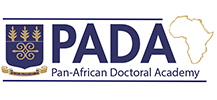Modules
The Doctoral Schools of PADA are held twice a year during the inter-semester break - in January and June/July. Each school offers one-week intensive modules on a number of specialized topics. Modules usually run from Monday to Friday, from 8:30 to 5:00 pm.
R is an open-source, flexible and powerful statistical analytic software used by leading academics and researchers worldwide. It is a preferred environment for data manipulation, visualization of publication-quality graphs and charts, and data analysis. The course offers a comprehensive understanding of the use of R in statistics and data analysis. It also introduces students to basic programming in R.
Requirement: Applicants must have taken PhD level courses in quantiative methods.
The final stage of all research is the communication of its findings. As researchers, you must be able to present your work in ways that bring out its value and potential impact. This requires the ability to confidently present, explain and defend your research before
- other researchers within the same discipline;
- other researchers in related or unrelated disciplines;
- non-academic audiences; and
- the general public, including the media.
The course will examine each of these forms of communication in terms of stylistic requirements. The common denominator across all these forms of communication is strong writing skills. The module therefore covers topics such as preparing the thesis from conceptualization to final project, referencing literature, editing and proofreading, and avoiding plagiarism. Participants are also given the opportunity to practice these skills during in-class exercises.
The university in Africa faces pressures from a global knowledge economy which emphasizes innovation and invention as pathways to career growth. Early and emerging scholars are the drivers of knowledge production in this new context, where career advancement is tied to local innovation and international competitiveness.
This course introduces early and mid-career scholars to the changing profile of the emerging African scholar. It will explore skills needed by the emerging academic to develop their careers by being able to map and leverage international opportunities in such career spheres as publications, funding, grants and fellowships, conferences, and networking.
This course provides students with practical innovative skills needed to complete the PhD process and beyond into their academic careers.
Focusing on creativity and problem solving, critical thinking, communication, collaboration, and computational learning skills (the 5Cs), the course exposes students to innovative approaches in teaching, learning and conducting research for African’s advancement. These approaches include active teaching and learning strategies, innovative pedagogy, as well as the effective use of learning management systems, open educational electronic resources, and internet multimedia applications for academic work.
Students will engage in individual and group assignments that will provide opportunities to apply the knowledge, creative mindset, and skills of innovative thinking to evaluate the African Union’s Agenda 2063, a strategic framework for the socio-economic transformation of the continent over the next 45 years.
Using the learner-centred and participatory approach, the class will meet physically and also use online technology to engage students, deliver course materials, and build a community of learners through the course website hosted on the University of Ghana’s SAKAI Learning Management System.
The process of obtaining a doctoral degree can be a difficult, long and lonely journey. It requires persistence and a plan to deal with resources, time and people. Having these skills will make your journey to a PhD less stressful and will guarantee that you will finish your thesis in good time.
The course is designed as a practical guide; it is conducted in a seminar style, with emphasis on experiential and peer learning. The course incorporates exercises and assignments that encourage students to individually reflect on and put into immediate practice what they learn.
o The nature of the PhD process
o Institutional environment and your obligations
o Managing your time
o Managing your supervisors
o Managing your thesis writing
o Managing life during the PhD (school-life balance; managing your studies as a female or part-time student; dealing with stress, frustration, etc.)
o Guide to grants, conferences and publishing in graduate school
o Managing your literature review (including using bibliographic managers e.g. Endnote, Mendeley)
The principles underlying the delivery of effective presentations apply to scientific talks as much as they do to other public speaking engagements. The course will explore important verbal and nonverbal skills, proven presentation structures, and innovative delivery techniques that are the hallmarks of impactful presentations. By the end of the course, students will have a good understanding of the essence of a presentation, the major dos and don'ts in oral and poster presentations and how to build verbal and non-verbal communication skills. Further, though individual exercises and small group activities, students will improve their ability to speak with poise, clarity, and conviction.
Qualitative methodology is not a discrete set of techniques or methods but an approach that shapes the entire process of research. The course will cover the fundamentals of qualitative methodology, from its underlying philosophical principles, to choice of research questions and approach, through data collection and analysis, and finally to the writing up stage.
Additionally, the course provides students practical skills in data analysis with NVivo. It will cover creating projects, importing data, editing, changing page view, creating nodes and sub-nodes, collapsing and expanding nodes, coding, uncoding, creating models and exporting nodes and models. Students will also learn to run queries, create matrices and explore data. The course will be useful for participants who have collected data and have transcripts to analyze. However, those without data will be given sample data for practical sessions.
We assume at least an introductory knowledge of qualitative methodology from previous graduate level courses. This course will therefore focus on building practical skills and the confidence to undertake qualitative research. The course will be intensive and interactive, with hands-on individual and group activities.
This course introduces students to basic quantitative techniques for social science research. It examines the theory and application of standard quantitative techniques, from descriptive statistics through inferential statistics to multivariate techniques. A broad approach is taken to give students ample opportunity to critically assess the rationale, theories, and concepts behind the various statistical techniques. The ultimate aim is to equip students with statistical tools for social science and humanities research.
The course is conducted in a computer environment with the aid of the Statistical Package for the Social Sciences (SPSS) on Windows.
The course places emphasis on the how-toas against the what-isaspects of quantitative application in social science research and, thus, students will learn how to design a structured quantitative questionnaire and code and analyze the resulting data using SPSS.






